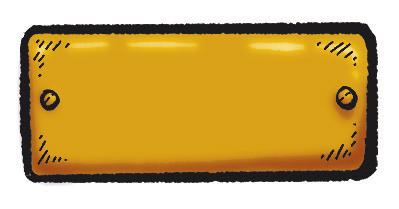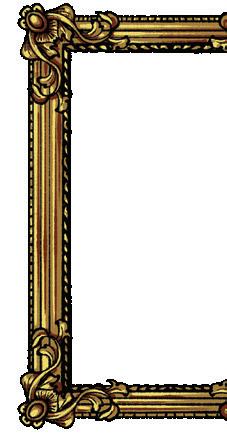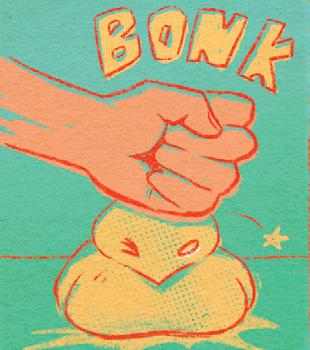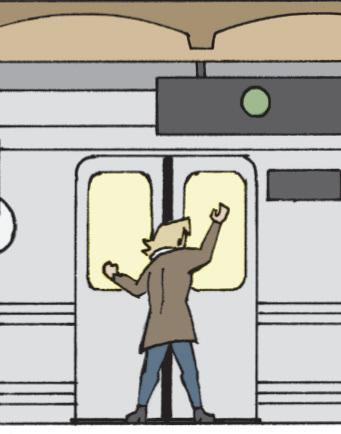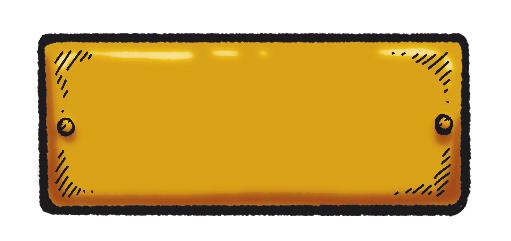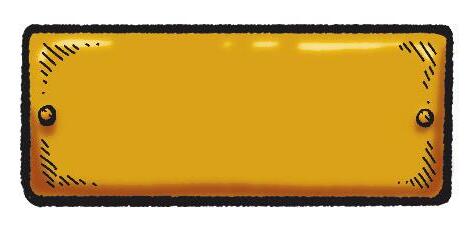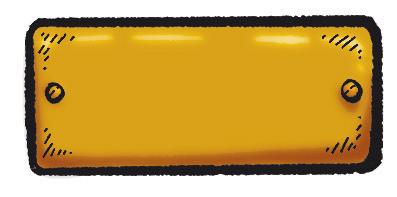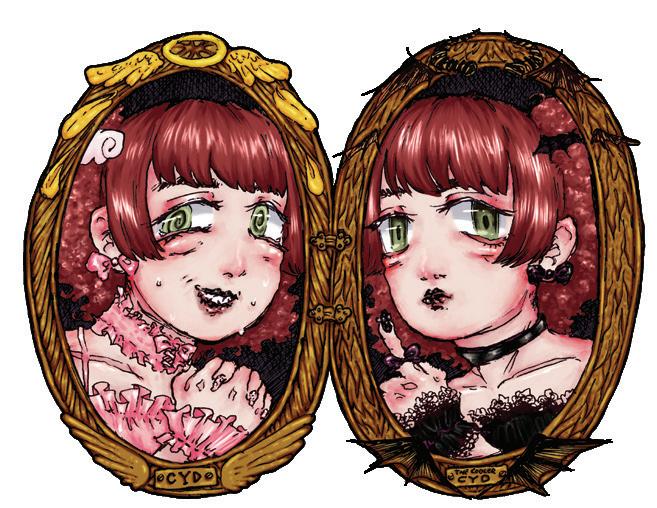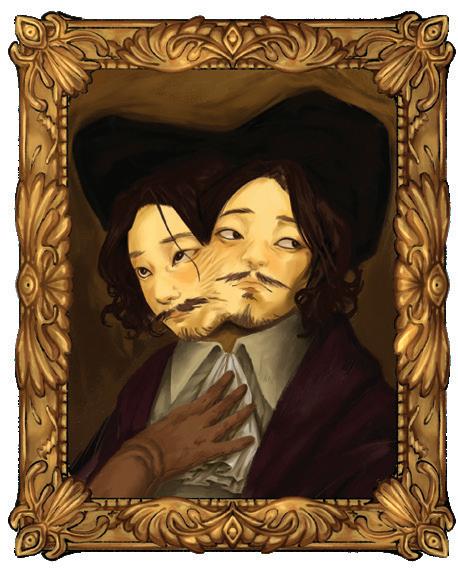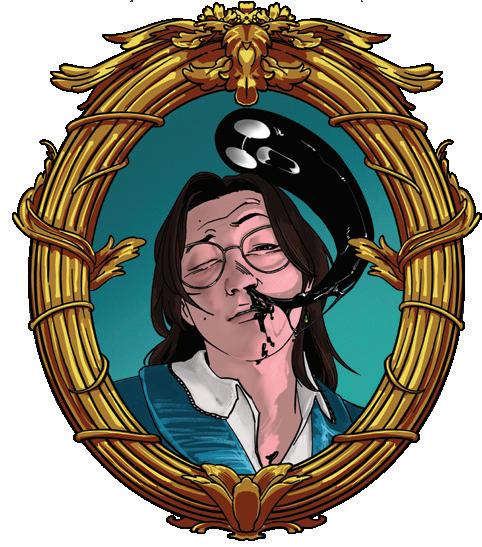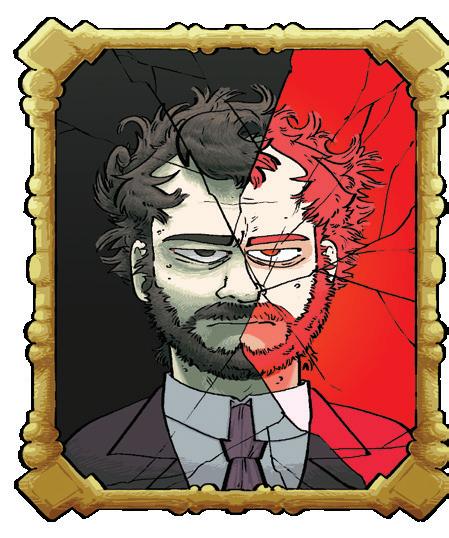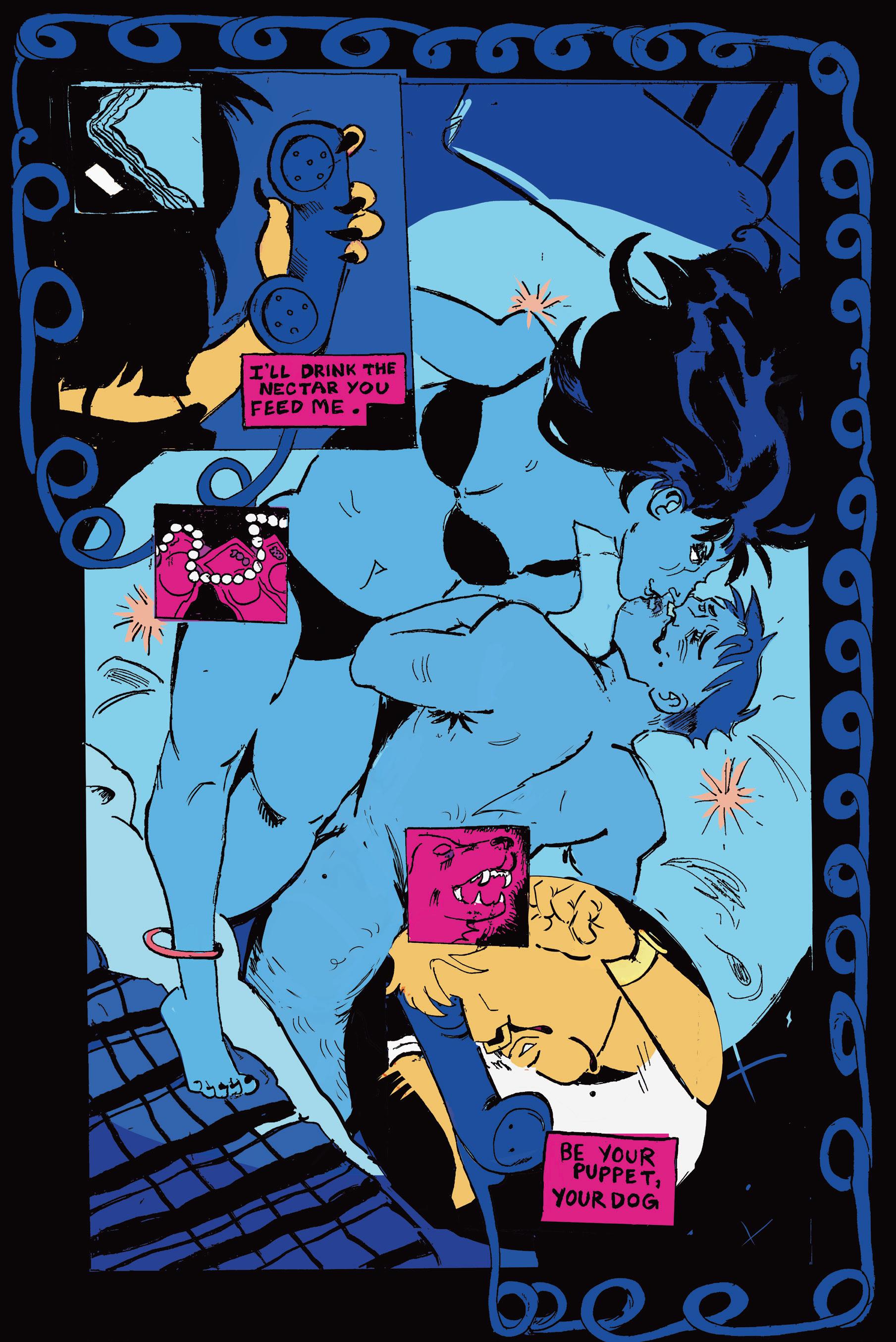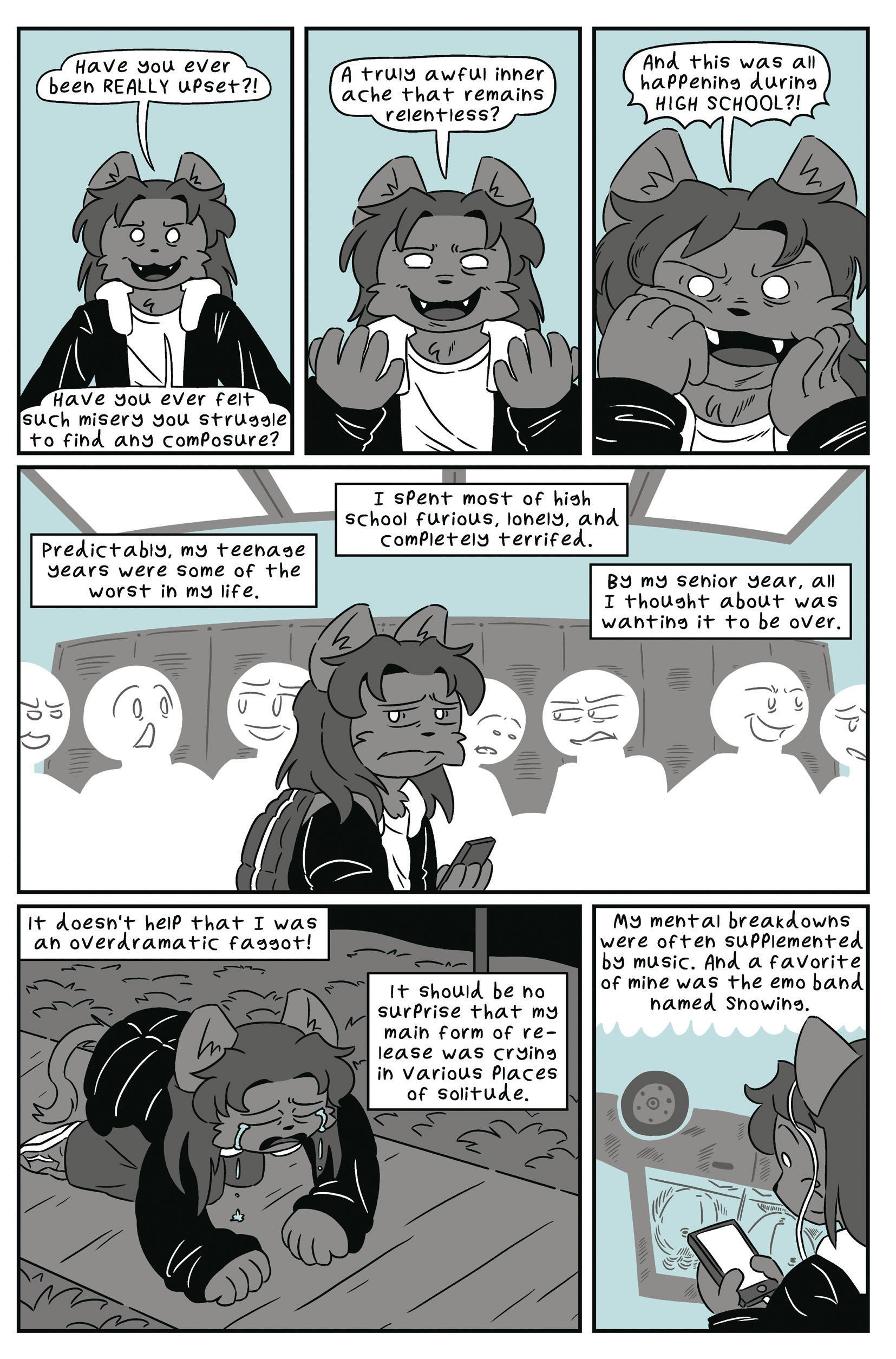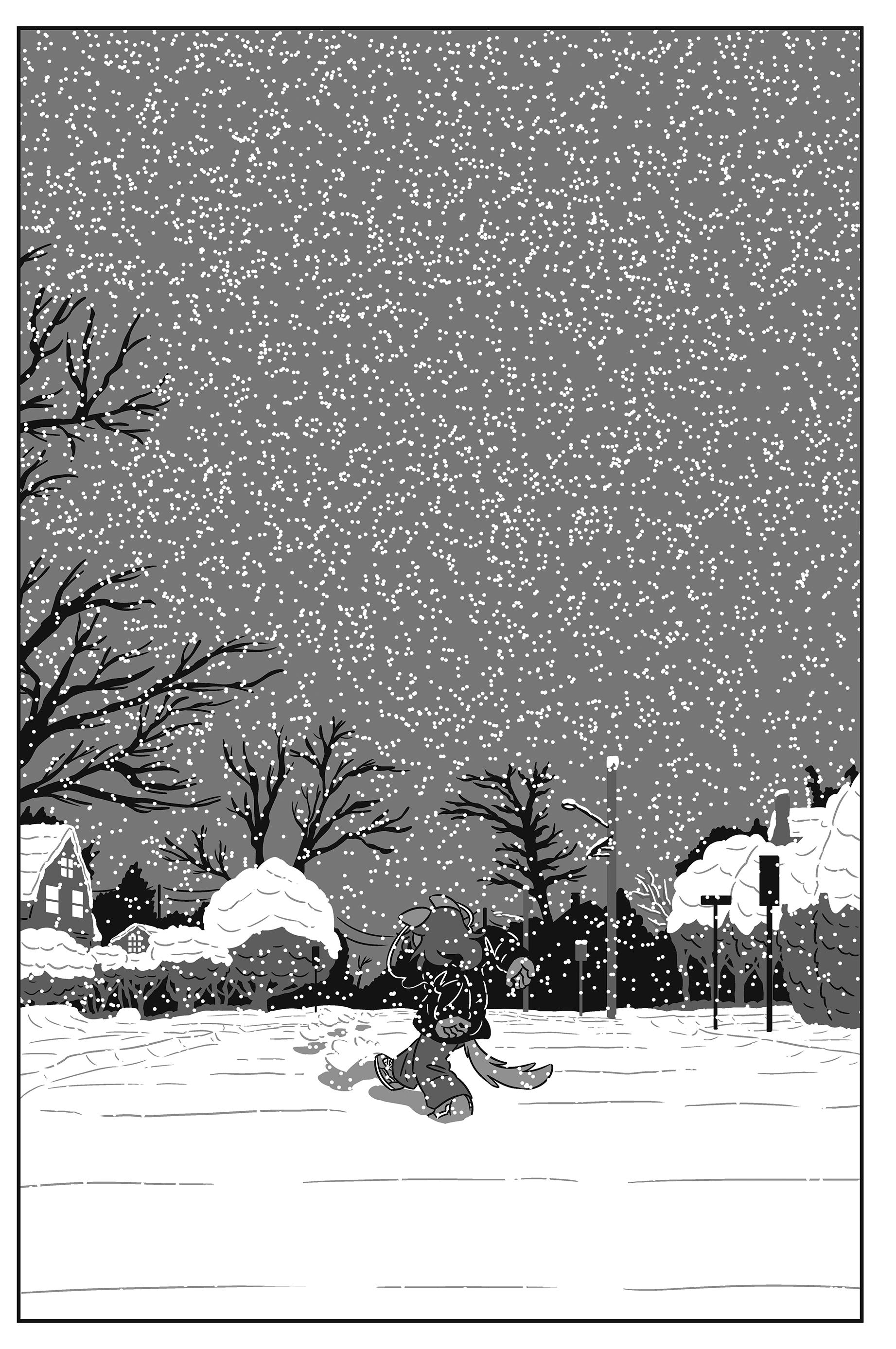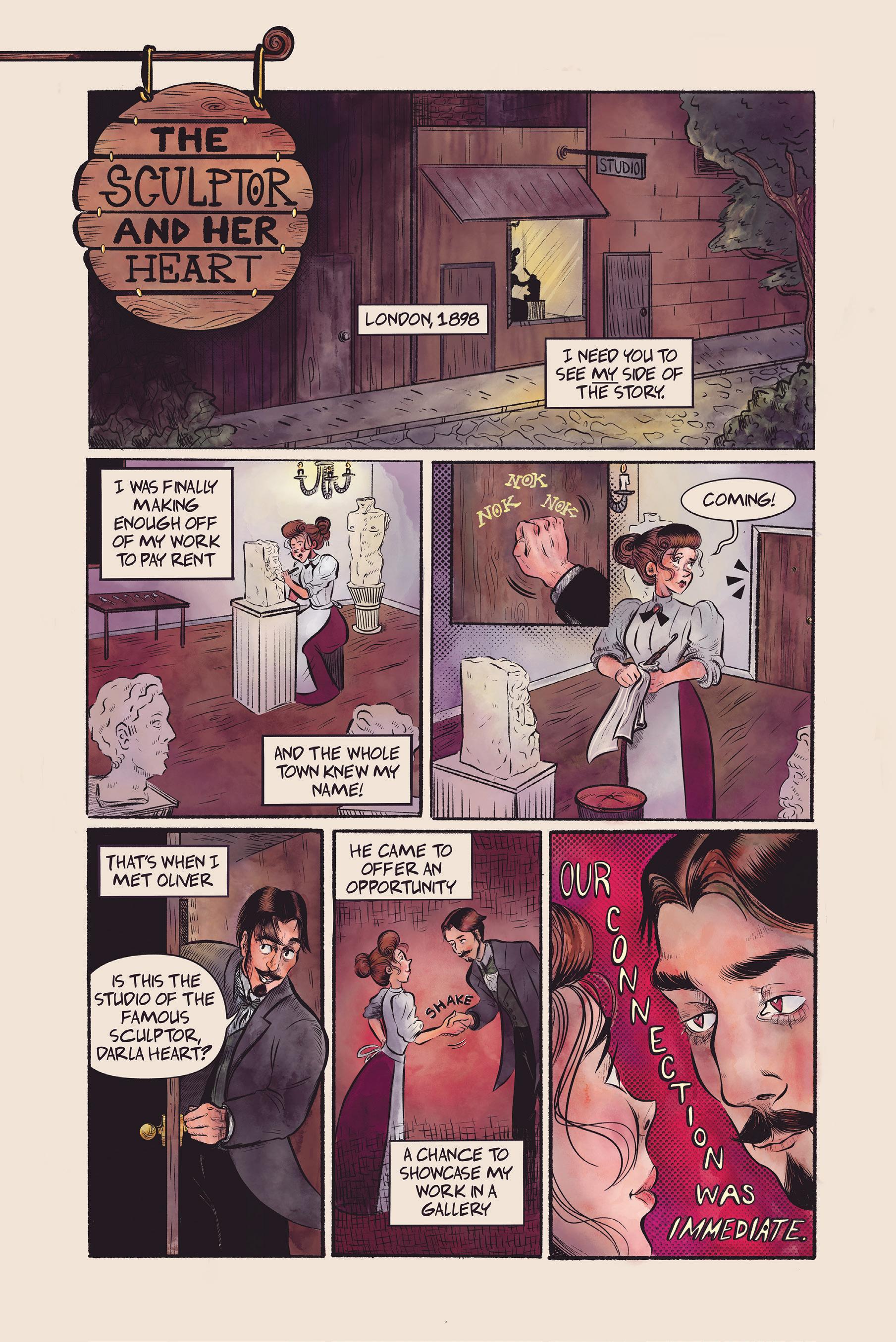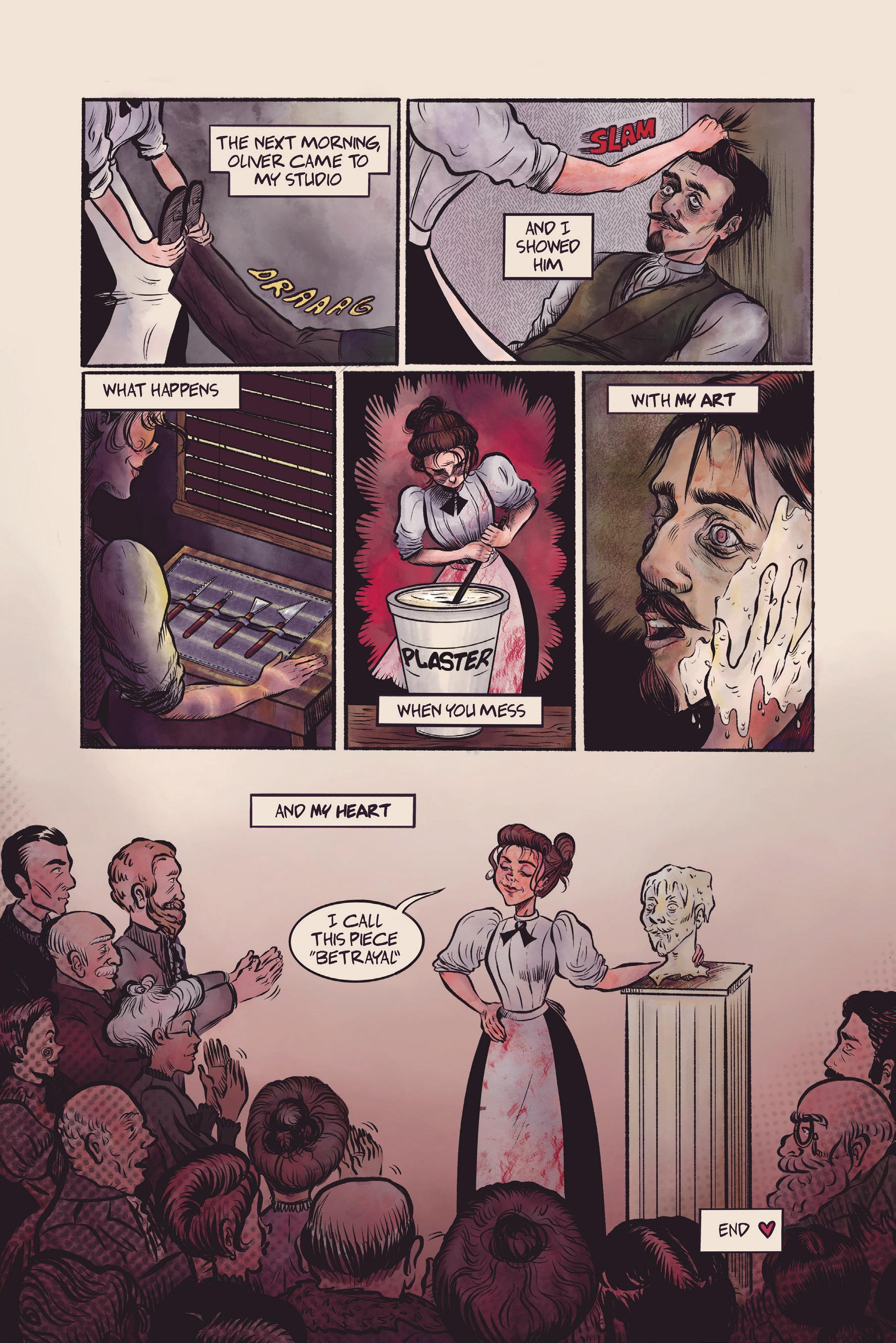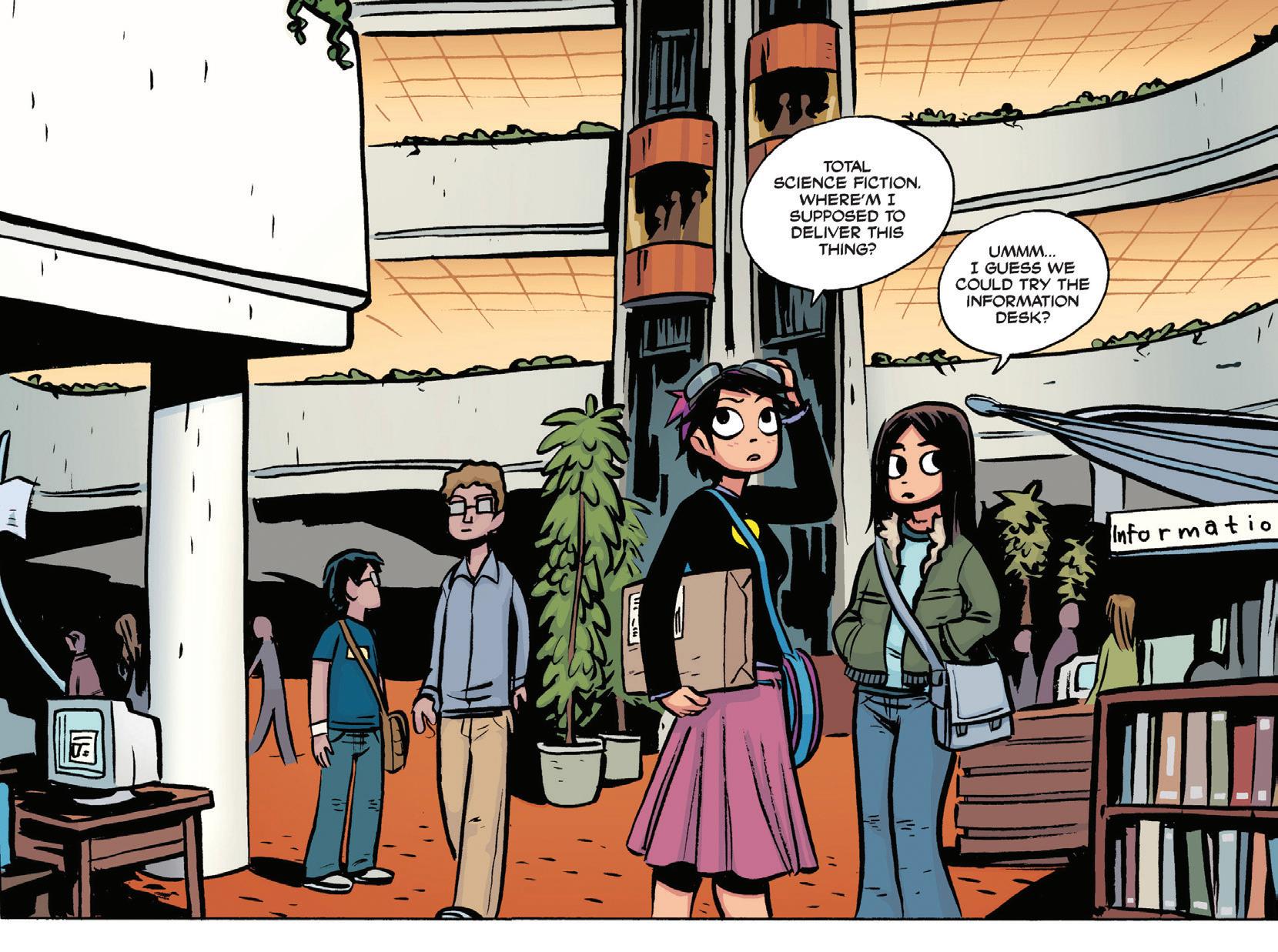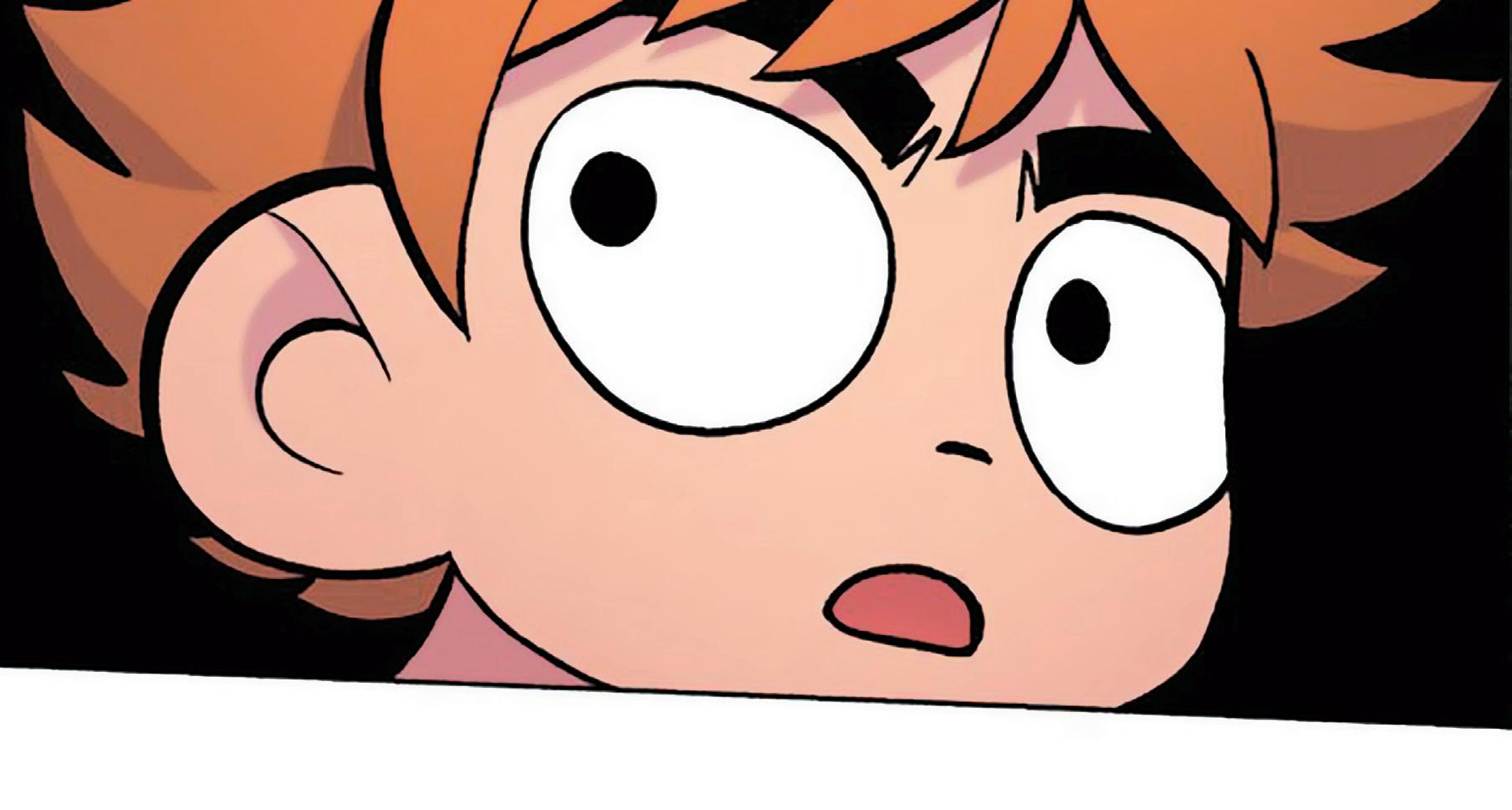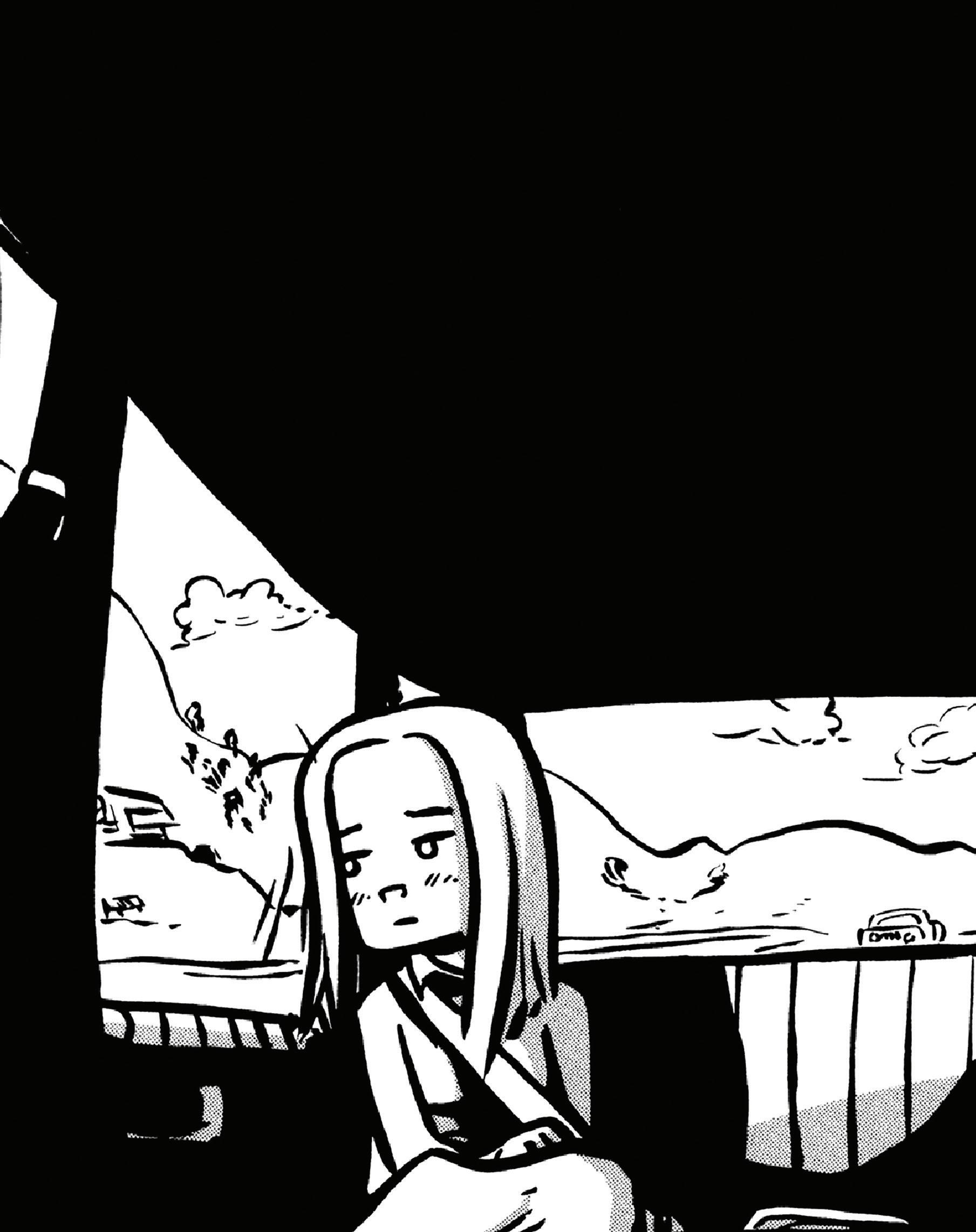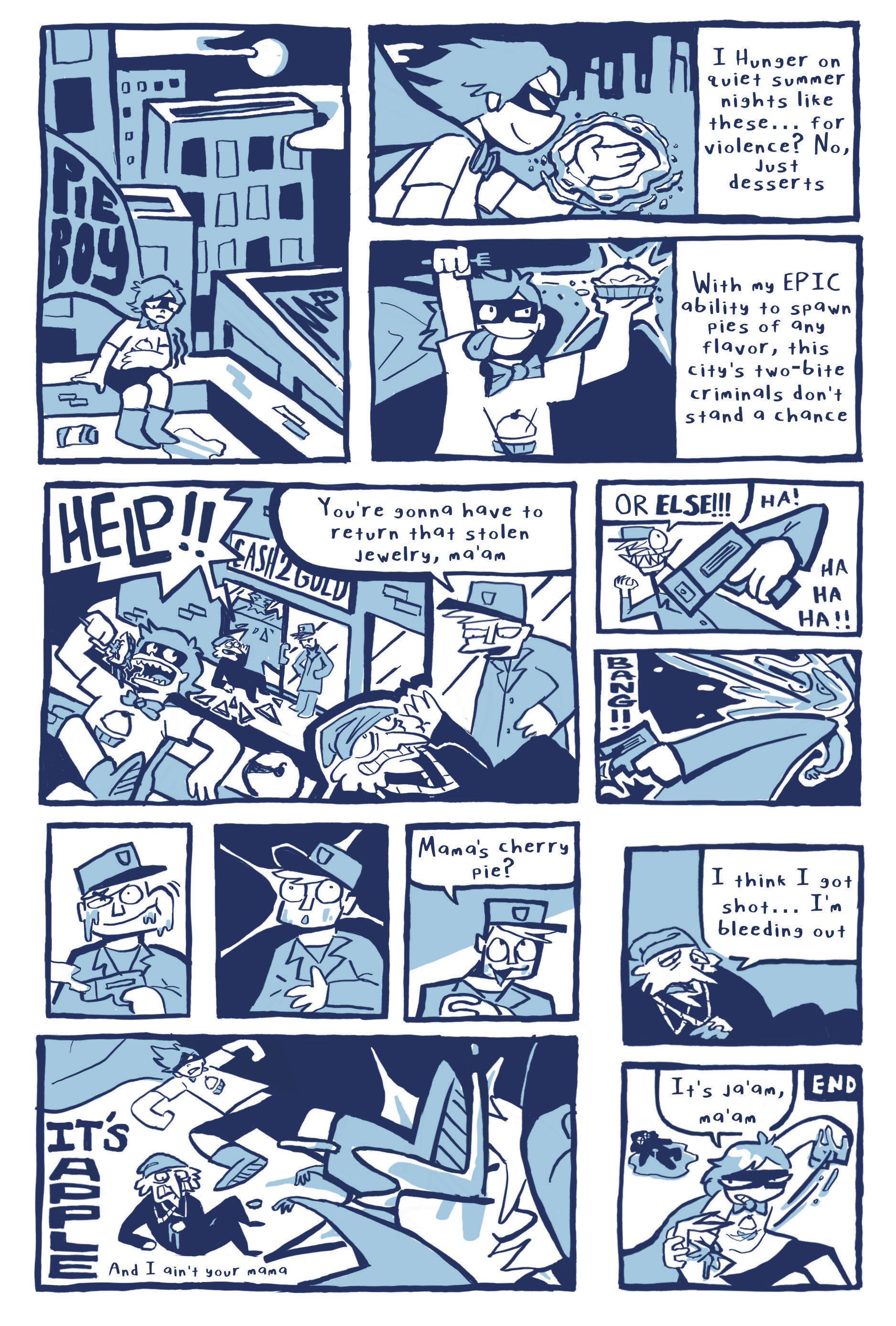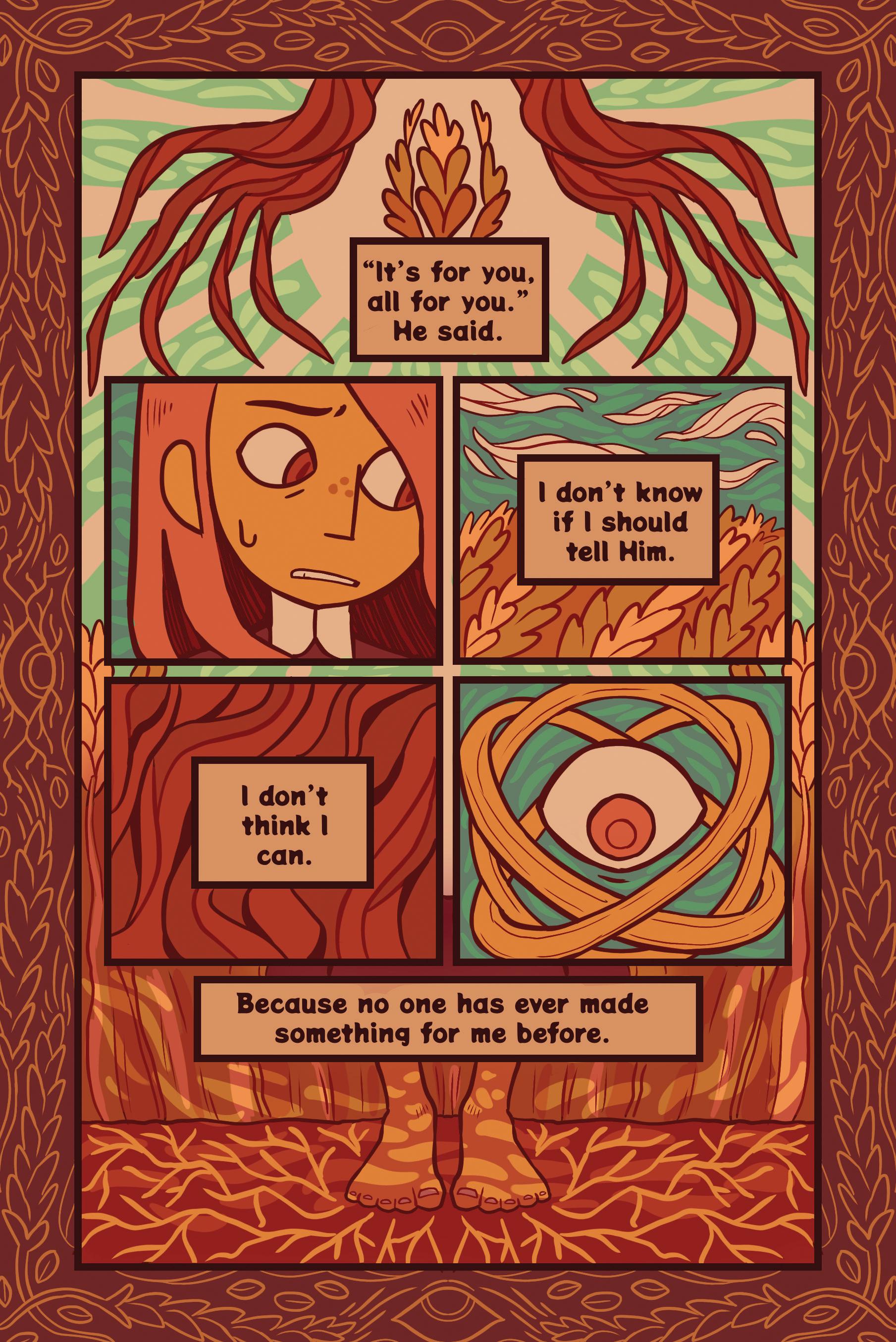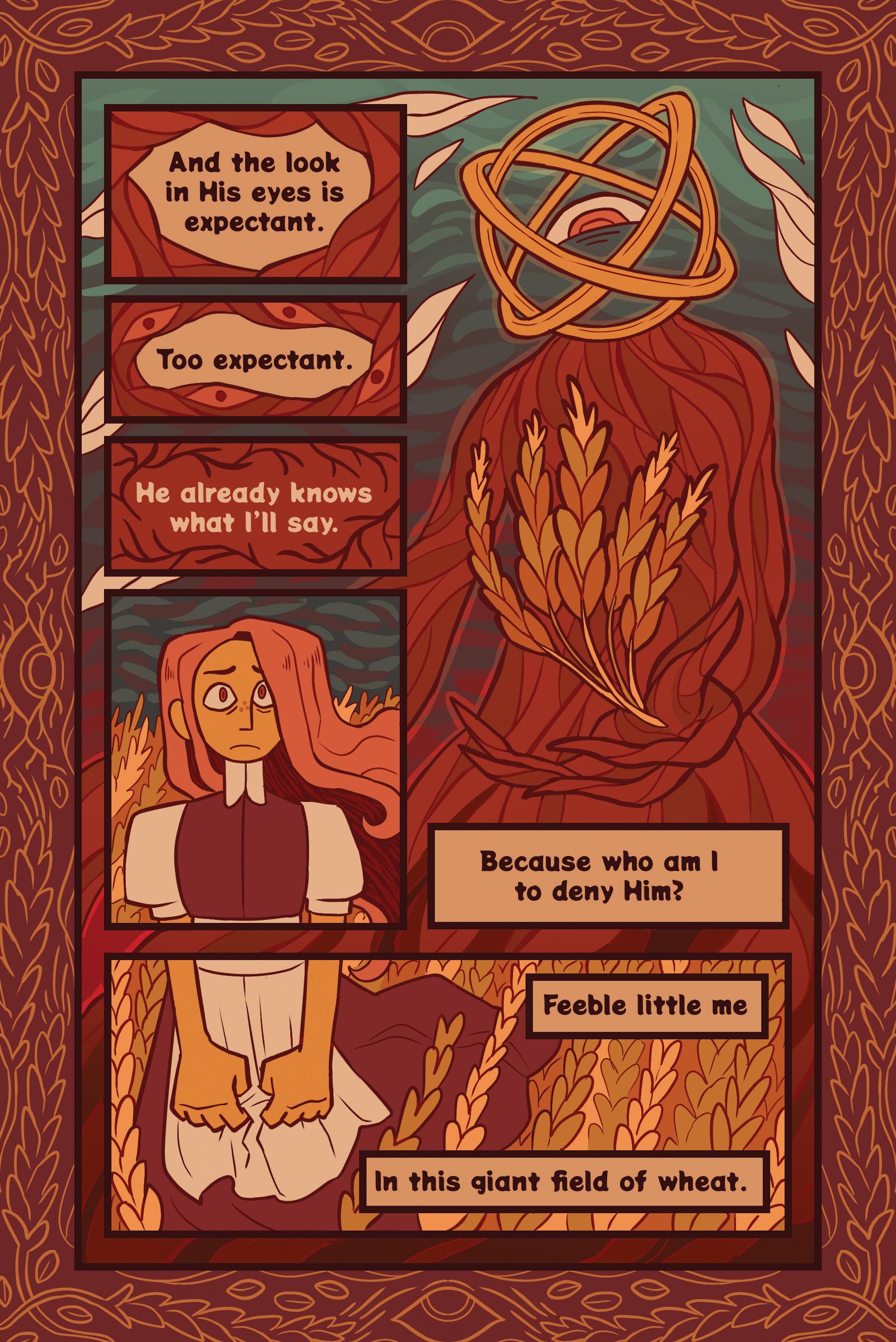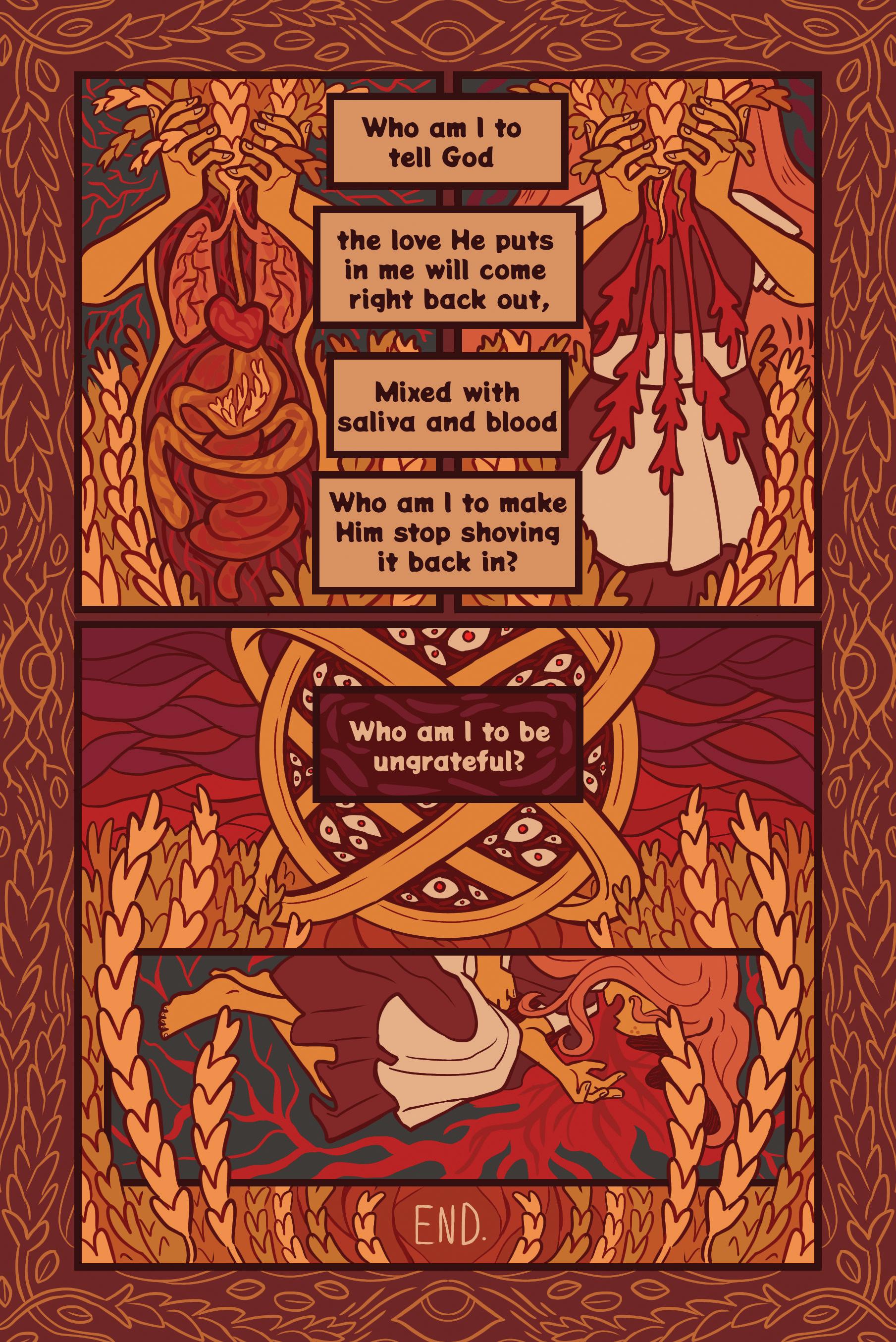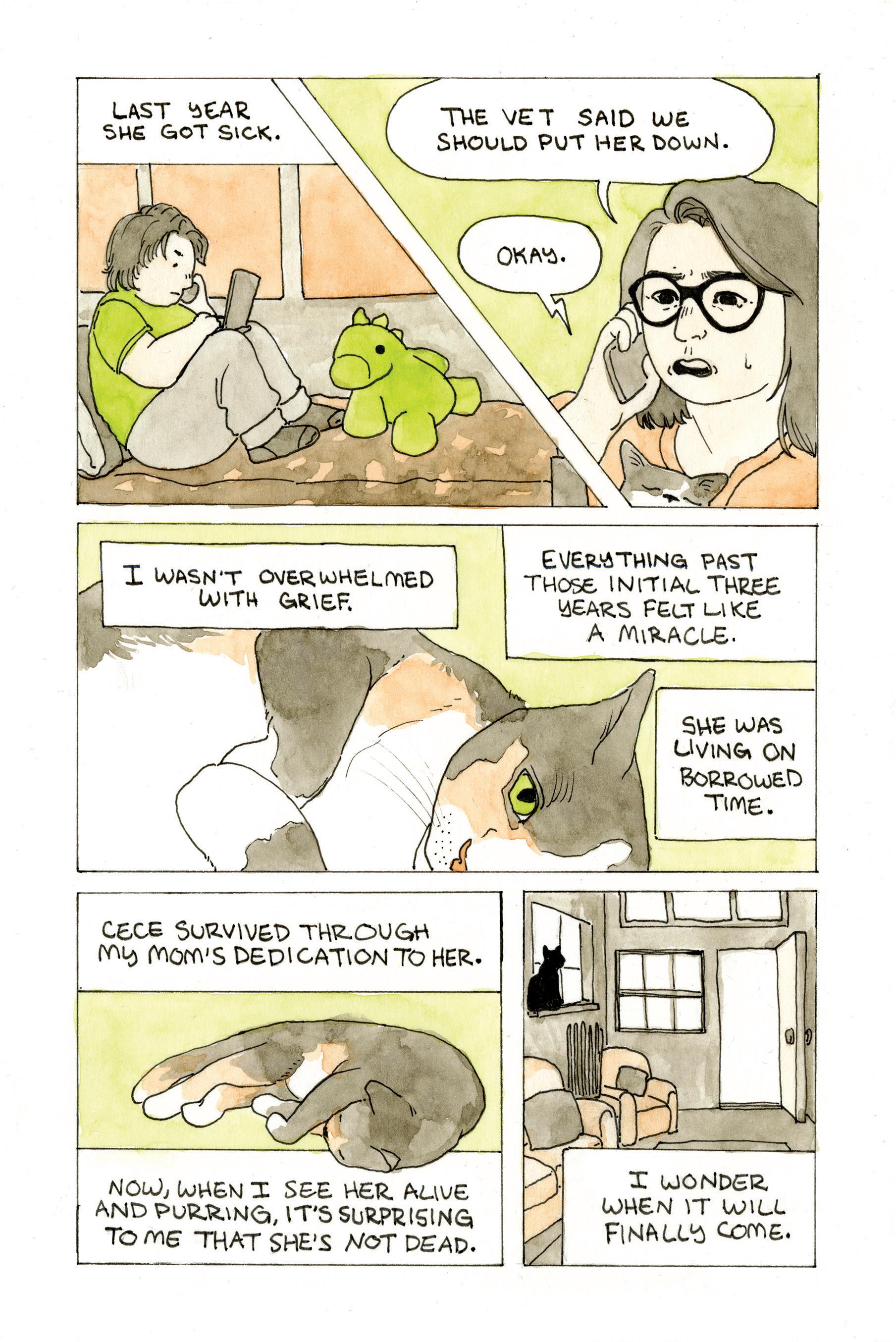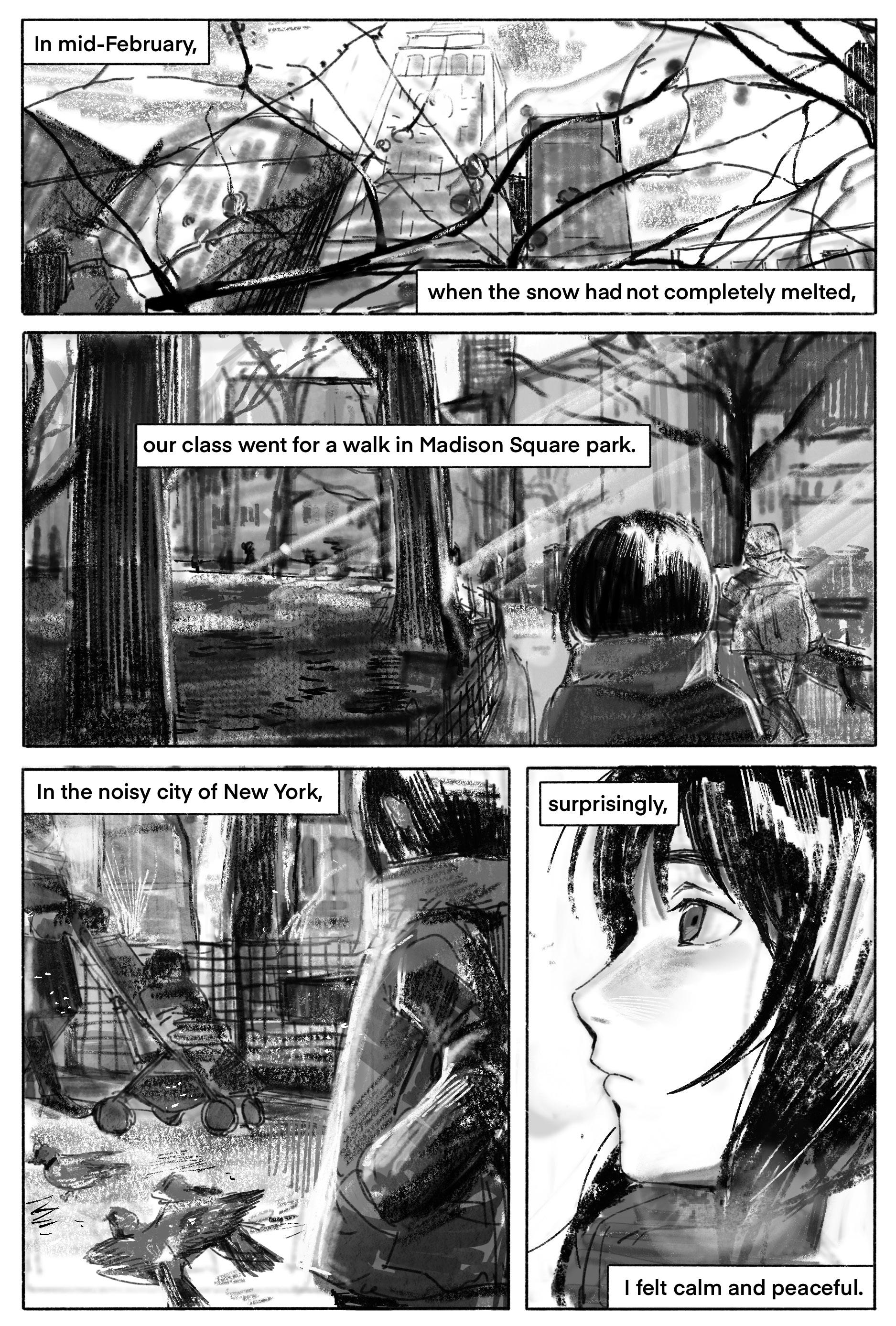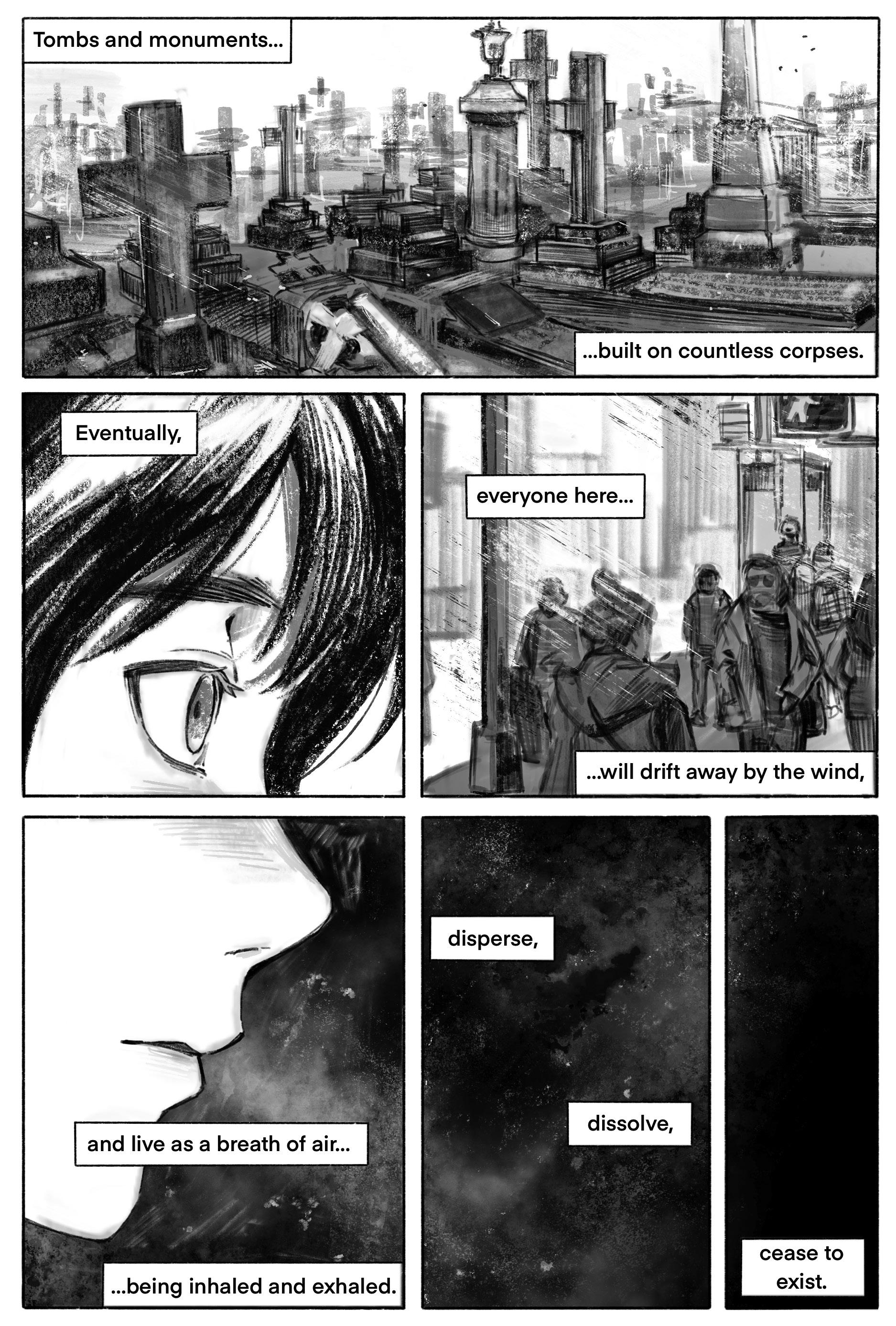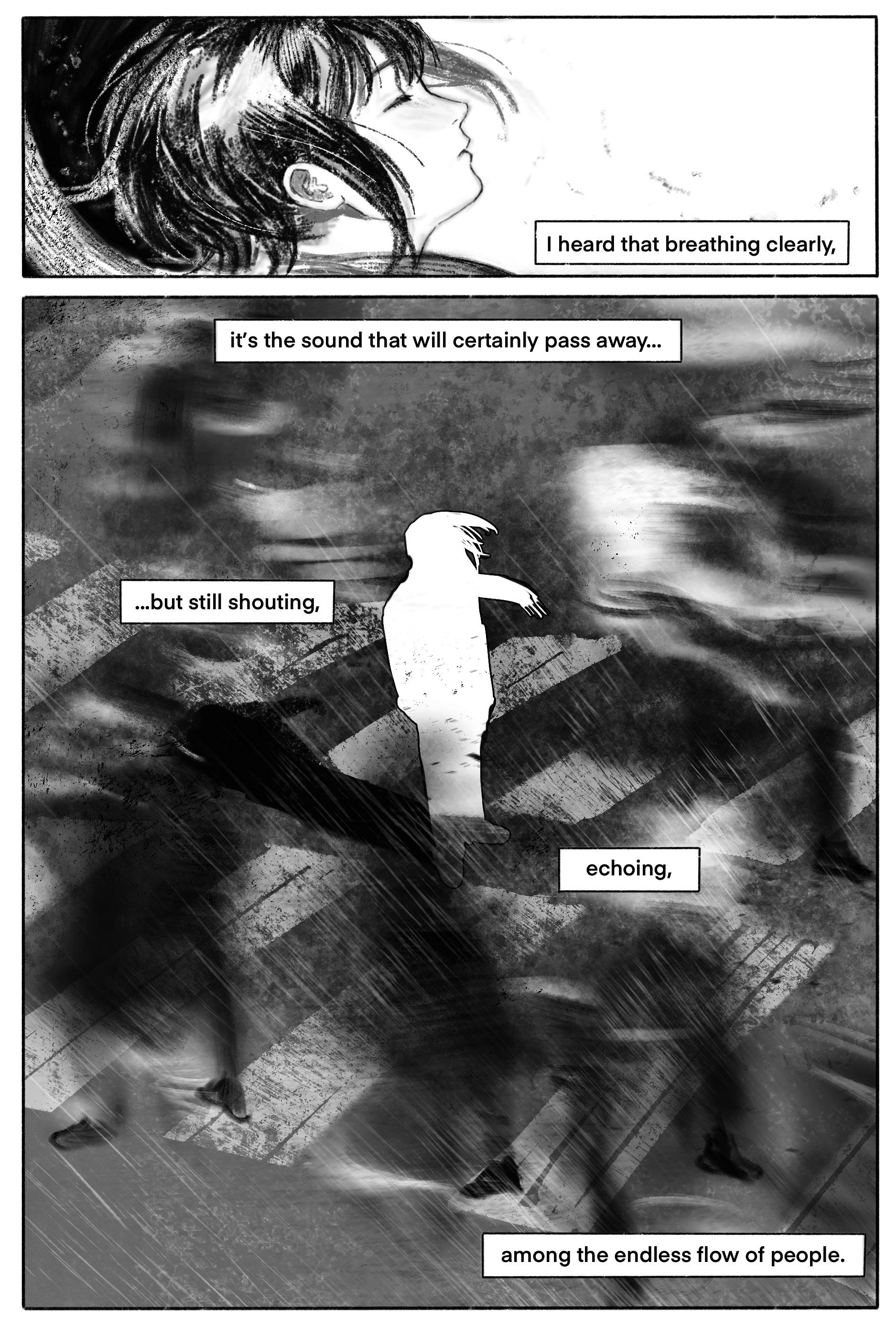Bryan Lee O’Malley
VS. THE GREAT MYSTERY
Inthefinaldaysbeforethe releaseofsmash-hitNetflix animeScott Pilgrim Takes Off, oureditorCydmetonZoom withseriescreatorandcartoonistsuperstar,BryanLee O’Malley.ThetwoCanadian expatsexploredthemysteries offindinginspiration,maintainingmotivation,andgrowingup.Justwhatwisdomwas imparted?Readontofindout…
Cyd: Congratulations on the anime, and thank you for making time for us! Actually, I’m from Toronto, so the books have always been huge to me. I read them when I was probably too young, but it was like, “this is where I live and it’s in a manga!”
Bryan: It’s funny you say that about Scott Pilgrim, because like that’s how I got there. I’d seen the cartoonist Seth’s book, It’s a Good Life If You Don’t Weaken on the shelf of my bookstore for weeks. I started looking at it, and on the back, there’s this map. When I started actually looking at it, it was like, “Oh, this is right near my house. This is my area. And this guy can make a book like this, set here?” It really blew my mind. I hope I can do that for people too.
It’s a perfect time capsule of 2000s Toronto. The setting goes beyond being a backdrop, the way the characters interact with it. I always
think about the Reference Library fight, where statues that used to be in the real location are broken and used as weapons. Was including the city as that force in the comic deliberate, or something that came naturally?
Yeah, it was. I didn’t really know about using photo reference. I never went to art school, or anything. I’d always try to draw from my imagination, which is very limited, I find as I get older. I’m like, “Oh, I’m not good at visualization,” that’s why I just start drawing to see what comes out. But around that time, I started using a ruler and reference, and just trying to step up my game a little bit. Naturally, from that it was like, “What can I draw that’s interesting in Toronto?” I thought I might as well draw the things that appeal to me, like the Reference Library, which is so beautiful. I love buildings, I love spaces, so I’d gravitate towards that stuff.
How did you begin sharing your comics with the world? Was it printed zines? Or did you mostly start online?
It was a bit of both, but online was definitely the impetus for it. When I first got internet, people were still getting internet, it was a brand new thing. I was 17 or 18, which is the perfect age to join fandoms. I was kind of in fan spaces, I would meet fanfic writers and draw stuff for them, though I was never a big fanartist. But I was really into Ranma ½. That was my big fandom. Eventually, that grew into meeting more artists through those circles. And we’d be like, “Oh, let’s put like a zine together,” so eventually a group of us would hang out in Toronto. I’d take the train there, I was like 18 to 20-ish, and for a few years we put together zines for Anime North, a big convention up there.
Yeah, it was the early version of online fandom and fanart spaces.
That’s how I got my start into making zines. Then I moved to Toronto in 2002, and went to the Beguiling, which is one of the best comic stores in the world, at least in the Western Hemisphere. I already had [comic books] from Seth, and some local stuff, and stuff from Jhonen Vasquez, he had put out some books that really inspired me around that time. I read a lot of manga, but getting into The Beguiling and the local scene there helped a lot, and just living life and getting outside of my hometown. I didn’t go [to art school], but I had a lot of art school friends, and I was that age. It was the whole incestuous scene, and multiple scenes crossing over, all that stuff fed into Scott Pilgrim.
I grew up with my dad taking me to The Beguiling and I don’t think I realized until recently what a culture hub it is. Speaking of settings, is the location of Seconds based on a real
place?
I think it’s just an amalgamation of stuff. From all my travels, basically. I wanted it to be extra cute, cuter than a real town. But then I went to Europe, and found towns in Northern England and stuff that were pretty much that cute. I’d go on trips and take photos of specific buildings, so the town in Seconds ends up being a patchwork of different things. The layout of the town is inspired by Halifax and Dartmouth where I used to live. I wanted to bring it all together and just create this dream world.
There’s also a great comic book store in Halifax!
Yeah, Strange Adventures. You should only move to cities where there’s great comic stores, that’s my number one career advice.
Down to Scott’s name, you can see
the impact that music has in your work. Something I’ve personally loved was how you included what you were listening to at the time—albums and playlists that inspired you—in the notes at the end of volumes. What’s your biggest well of inspiration?
At this age, I just try to take it all in. I’m not stuck in my media quite as much, especially this past year when I’ve been so busy making my own thing, which has always been the case. When I’m deep in a book, It’s hard to do anything other than listen to music or listen to audiobooks.
Scott Pilgrim has so many influences from my teens and 20s. I just tried to take literally every single thing and mash it together. I think that’s part of why it’s fun for people, but also, I used it all up. There’s none left for Scott Pilgrim 2, so what would you even put in there? Since then, I’ve played 10% of the games in my 30s and 40s that I played in my teens and 20s. Same across the board with music. You get to this age, and you’re just like, “What’s happening? What are these noises? Let me just listen to the Smashing Pumpkins for the thousandth time.” Nowadays, it’s a mix, but back then, everything was so great, and I was excited about all of it. And why not try to play in that world that I love so much?
Do you have any recent media recom-
mendations?
I just got the new [Daniel] Clowes book. I’m really excited to read it, because Patience was probably my favorite graphic novel in the past decade. I’m on page one of the new one, and I’m just saving it. It looks so good. Oh, there’s this Korean show called Moving. It’s a superhero thing, but filtered through Korean drama tropes. It’s really high budget, and exceptionally well done. It’s like a highschool X-Men kind of thing. But I haven’t been consuming as much, just because I’ve been so busy doing a show, which I’ve realized is like a four dimensional comic. So much real estate in my mind is taken up by the thing. Even now, when it’s almost out, there’s still so much to do.
Here in comic school, we always talk about how cartoonists wear so many hats. You’re the director, you’re the costume designer, you’re casting. When
you take something you made, and give it out to other people for them to work on, is it hard to relinquish control?
It is, but the “wearing lots of hats” thing really served me well in the TV process too. It’s the same thing, just slightly different hats. Up to writing the scripts and getting storyboards, I was like, “Okay, I totally get this. I’m dialed in. I know exactly what this is. I could do every step of this myself.” But beyond that, it was like a cliff. “Oh, there’s sound? Oh, there’s time?” There’s all these very specific things that I’d never had to consider. And then, the production aspect; having other humans doing stuff, and you have to like it. But if it’s not good, their feelings are gonna be hurt because they’re artists, so it’s this very delicate constant balance. We all have the same goal of making this one thing. As a cartoonist, I’d do it all myself, I’d just be happy with whatever I did. If I slipped up, “Okay, whatever,
that page is not so good, next one will be okay.” But this way, there are just so many things to consider. Ultimately, I’m really happy with it, but it was a huge learning curve. I look at it as a new book that I got to make with all these other people!
In both Scott Pilgrim and Seconds, there’s this negative alter-ego, with the Nega-Scott and Hazel’s witch. There seems to be a theme of “sometimes our own worst enemies are ourselves”. Do you ever struggle with getting stuck in your own head? How do you combat that?
“You should only move to cities where there’s great comic stores, that’s my number one career advice.”
You have to make every step of your process combat that. Any kind of friction you can remove from every step of the process is very helpful. When I started out, I started drawing small in order to scan in one pass on the scanner, so it saved me time. I’d just use whatever tool is easier. Actually, I saw Seth saying in an interview recently that he’s drawing with magic
markers now. I thought that was so inspiring, if he can let go, we can let go.
I spent so many years learning the brush. And I’m good at it, the voice of my cartooning is through the brush, but it’s not the only tool to get there. I’ve done a lot of digital and played with that more in the last few years. Any mark I can make, if I can get excited about it, I think it’s good. No friction, take out as much as you can. Just make it fast and easy. Anytime I see a longer comic, I’m like, “Oh, they must be really fast, or it took many, many years”.
to
just churn stuff out if I’m not excited about it. There’s so much material now. In the last few years, you can watch someone’s day to day experience all day long, and never run out. And if that makes you happy, why do you even need a comic or a movie? Things are changing, consumption is changing, and the way that we communicate is changing. If our art is about communication, then it’s the same thing for me to take years to write a book that takes you hours, or days, to read. You could spend those hours and days watching TikTok.
“Any mark I can make, if I can get excited about it, I think it’s good.”
I’ve been told to ask about Worst World. But you’ve said that because of how much the world has changed since you started working on it, you’ve had to put it aside. Is it still on the backburner?
It’s still percolating, but exactly, the world is changing so fast. Also, I’m successful now, and I don’t have that hunger the same way. I just want to sit back and be able to say something when I’m ready to. I’m inspired by the artists that take forever to put stuff out, and we just roll with it, the Cormac McCarthys of the world. Not that I want to be that, but I don’t want
Even in comics, compared to early webcomics, and where it is now with Webtoon and other corporate platforms, it’s completely different.
The thing is, I don’t read that many webtoons. But then, that Korean drama I was just telling you about, apparently was based on a webtoon. Just looking at other mediums, books too of course, everything has been so corporatized. Like, I’m doing a show for Netflix, and that’s just how the world works. I feel like I’m getting away with something. I feel like I’m making something cool and weird
and different that Netflix wouldn’t have asked for necessarily, but I’m still having to make it within that system.
Have you felt like you’ve had a significant amount of freedom, or have you felt that corporate tyranny…?
Actually, I feel like no one was paying attention. Like, they left us alone and had no idea what we were doing. We’re doing something really rascally over here, and they don’t know… Now they know, but they’re on board, and I’m grateful for that.
It’s easier to ask forgiveness than permission!
but when I was finishing Scott, I told people that I’d never want to continue doing as many volumes as One Piece or whatever, because I feel like I’d be dead inside. Obviously, I’m not commenting on the creator of One Piece, he seems very alive inside. But I was like, “I gotta move on to new things. I don’t want to be stuck in this thing that’s about being in your 20s”.
“Things are changing, consumption is changing, and the way that we communicate is changing.”
But now I have to wait and see if the fans forgive me!
It’s not a direct adaptation, it’s changing some things, which seems exciting! Do you feel that if you told the same story over and over, it’d just get stagnant?
Yeah. It’s not quite the same thing,
In the new show, I found ways to comment on my continued growth as a person, and aging, and the culture around me growing up more. We’re not in the same culture that we were in the early 2000s. I’m thankful for that, in many ways. Many tiny things in the book that were a reflection of the culture at the time are things that I’d change now, and I wouldn’t feel any embarrassment about changing them.
I approached the show like, “What would I do now? How would I tell the story of Scott Pilgrim, in a world where there’s already a story of Scott Pilgrim?” People already know all about it, and people consume media
in such a different way. There’s this whole apparatus that now I have to think about as a storyteller, how do I use that to my advantage?
Did you ever feel stuck or pigeonholed by people seeing Scott Pilgrim as your thing? Was it something you learned to
overcome and work with?
I probably was a little resentful for at least for a moment. But the older I get, I’m just so continually humbled by it. Like, a thirteen-, fourteen-year-old who didn’t even exist when the movie came out, much less when the book came out, is still somehow picking
it up and connecting with it, I’m just very moved by all that. It’s weirdly hung on, in a way that I could never have anticipated. So I keep saying, it’s a great mystery. But I’m happy to be a part of it.
I wanted to talk about Lost at Sea. I remember reading it at eleven or twelve and having the conscious thought “this is really good... but I feel like it’s kind of going over my head right now.” And then, our first year back from COVID here at SVA, I re-read it right before a class. And I was very grateful for the masks at that moment, ‘cause I was sobbing under mine.
“I just tried to find something a little bit true in all the silliness.”
about kids reading Scott Pilgrim when they’re even seventeen or eighteen. You get to revisit it in a few years and see how different it is. That’s true of so many books. I’ve always loved that about stories. And I love that people get that now. They can read Scott Pilgrim again now, in their thirties and forties, and get something different out of it.
Especially for me, I just turned twenty-three. So I’m like, “Oh God, I’m Scott Pilgrim-years old!”
That’s awesome! I always hear
I think there’s a certain kind of judgment when you’re a teen reading Scott Pilgrim, you’re like, “Oh, he’s a shitty person. He makes bad choices.” But it’s like, “Call me when you’re twenty-five!”
I’m already feeling it!
You’re in the real world. Now you have to make choices, and they’re not always gonna be the best ones, because you just don’t know what’s going on. I had no idea. When I look back at Scott Pilgrim now, it’s like my only concern was “how do I meet girls?” There was only one brain cell operating. All the rest of it was going into writing a story, analyzing people, and figuring out how to draw. I had no real ambitions, and I just kind of pooped out this book at the time. Somehow, it’s caught on, all these years.
It’s the age where you realize that nobody knows what they’re doing. And you definitely don’t know what you’re doing.
You at twenty-three years, or
someone at seventeen, can read my entire twenties in an afternoon. I put in real time learning all that, but now you can read a compressed version, and it just takes a few hours and you’re like, “oh, I feel enlightened!” I didn’t really learn that much, but the little amount that I learned is distilled into Scott Pilgrim. Hopefully, people will get something from it.
I definitely felt that on my last reread. Like, “Oh, I get it now.”
I don’t know how I did it. But I just tried to find something a little bit true in all the silliness.
Putting your life into it, putting down what comes naturally, as long as you’re doing it authentically, I think it resonates with people. And it clearly does.
A million things had to
go right all around me. I’m just very grateful that it exists. The same is true of the movie, and the new show. It has so many moving parts, and to deliver something pretty good that will stand the test of time is always a miracle, in a cool way. I hate to use the word miracle but, I mean—
It feels like it! I mean, if I had told kid-me that I was in this position today, I don’t think she would have believed me.
The great mystery, as I keep saying. I keep applying it to dumber and dumber things, but I love that phrase.
No, it’s great. I’m gonna take that. I just want to wrap up by saying, you’ll always be my Clash at Demonhead.
Thank you!
Thankyouagain,Bryan! WatchScott Pilgrim Takes Off onNetflix,andfindall comicsmentionedinabookstorenearyou!











